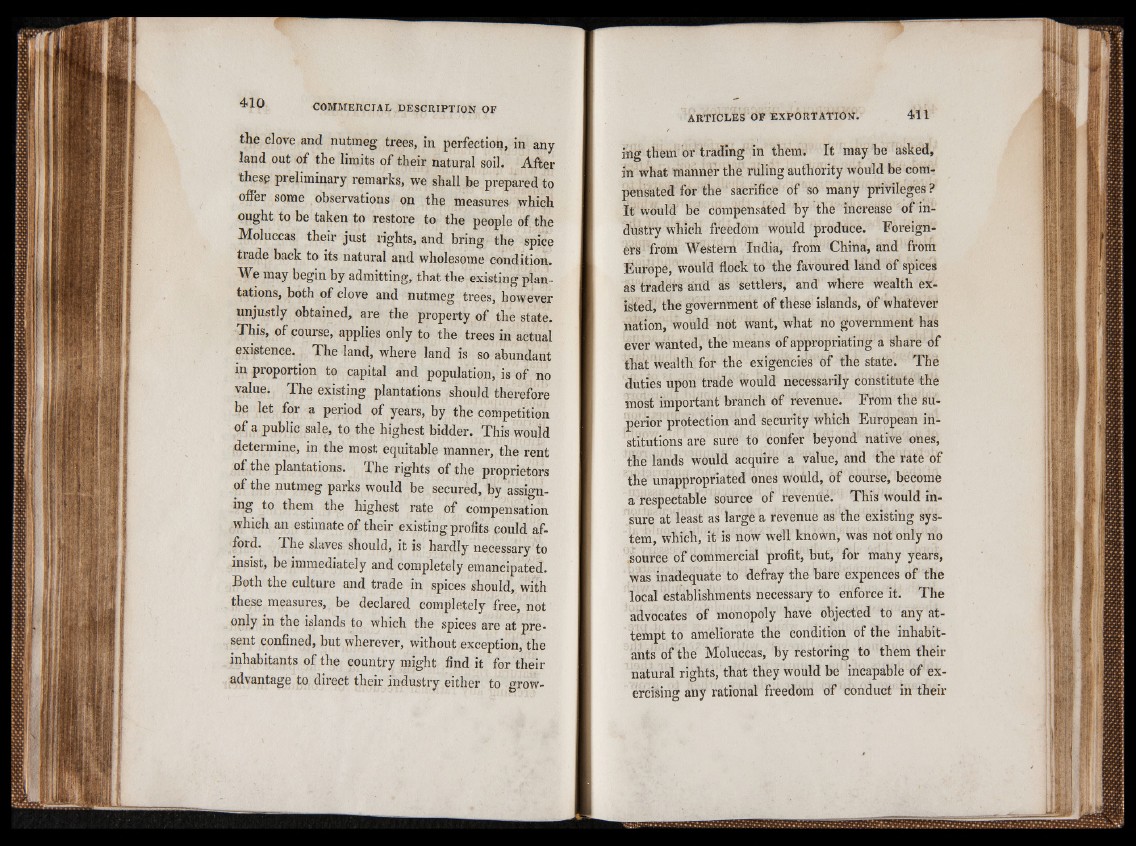
the clove and nutmeg trees, in perfection, in any
land out of the limits of their natural soil. After
these preliminary remarks, we shall be prepared to
offer some observations on the measures which
ought to be taken to restore to the people of the
Moluccas their just rights, and bring the spice
trade back to its natural and wholesome condition.
We may begin by admitting, that the existing plantations,
both of clove and nutmeg trees, however
unjustly obtained, are the property of the state.
This, of course, applies only to the trees in actual
existence. The land, where land is so abundant
in proportion to capital and population, is of no
value. The existing plantations should therefore
be let for a period of years, by the competition
of a public sale, to the highest bidder. This would
determine, m the most equitable manner, the rent
of the plantations. The rights of the proprietors
of the nutmeg parks would be secured, by assigning
to them the highest rate of compensation
which an estimate of their existing profits could af-
f9rd* The slaves should, it is hardly necessary to
insist, be immediately and completely emancipated.
Both the culture and trade in spices should, with
these measures, be declared completely free, not
only in the islands to which the spices are at present
confined, but wherever, without exception, the
inhabitants of the country might find it for their
advantage to direct their industry either to growing
them or trading in them. It may be asked,
in what manner the ruling authority would be compensated
for the sacrifice of so many privileges ?
It would be compensated by the increase of industry
which freedom would produce. Foreigners
from Western India, from China, and from
Europe, would flock to the favoured land of spices
as traders and as settlers, and where wealth existed,
the government of these islands, of whatever
nation, would not want, what no government has
ever wanted, the means of appropriating a share of
that wealth for the exigencies of the state. The
duties upon trade would necessarily constitute the
most important branch of revenue. From the superior
protection and security which European institutions
are sure to confer beyond native ones,
the lands would acquire a value, and the rate of
the unappropriated ones would, of course, become
a respectable source of revenue. This would insure
at least as large a revenue as the existing system,
which, it is now well known, was not only no
source of commercial profit, but, for many years,
was inadequate to defray the bare expences of the
local establishments necessary to enforce it. The
advocates of monopoly have objected to any attempt
to ameliorate the condition of the inhabitants
of the Moluccas, by restoring to them their
natural rights, that they would be incapable of exercising
any rational freedom of conduct in their